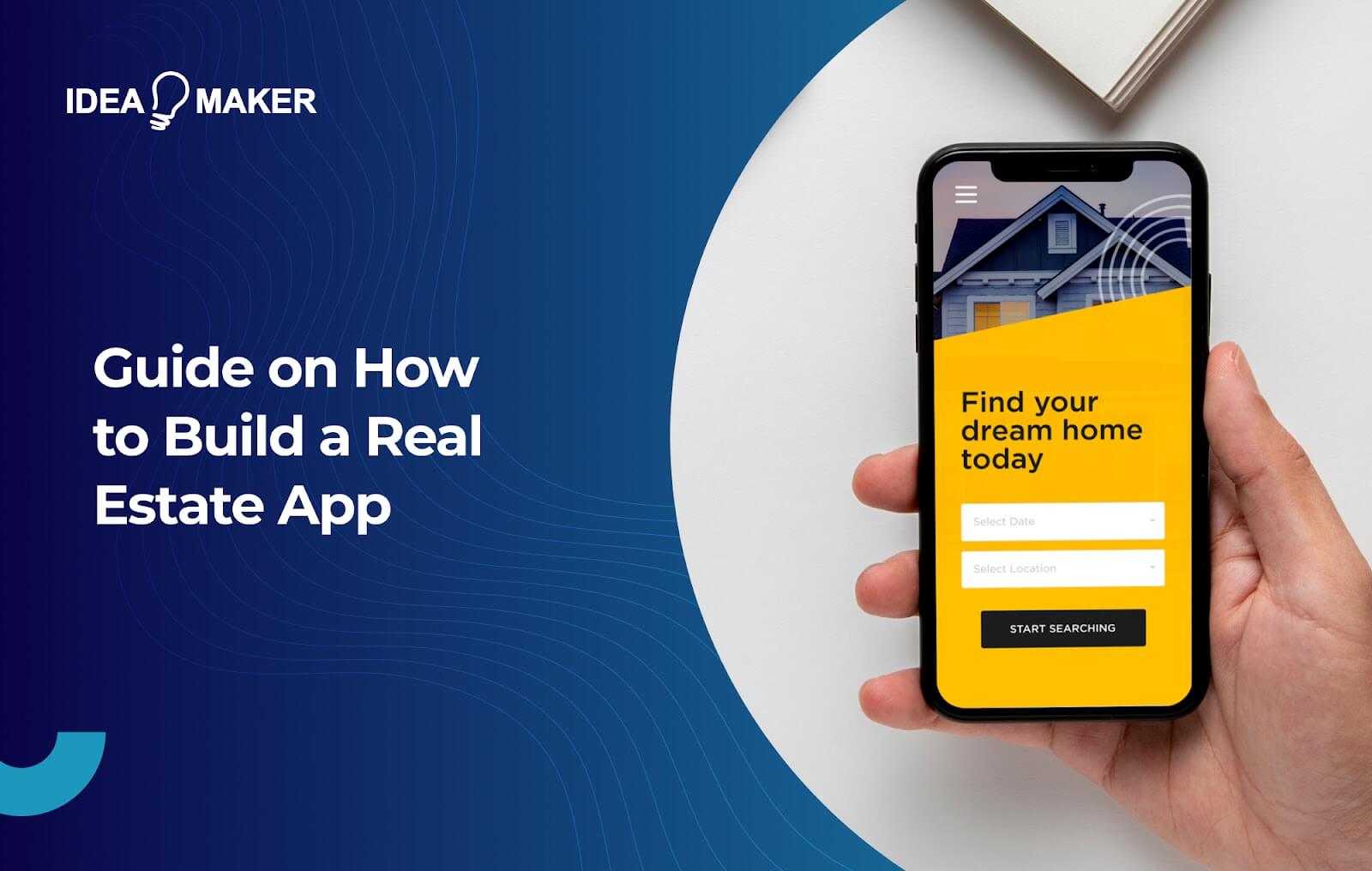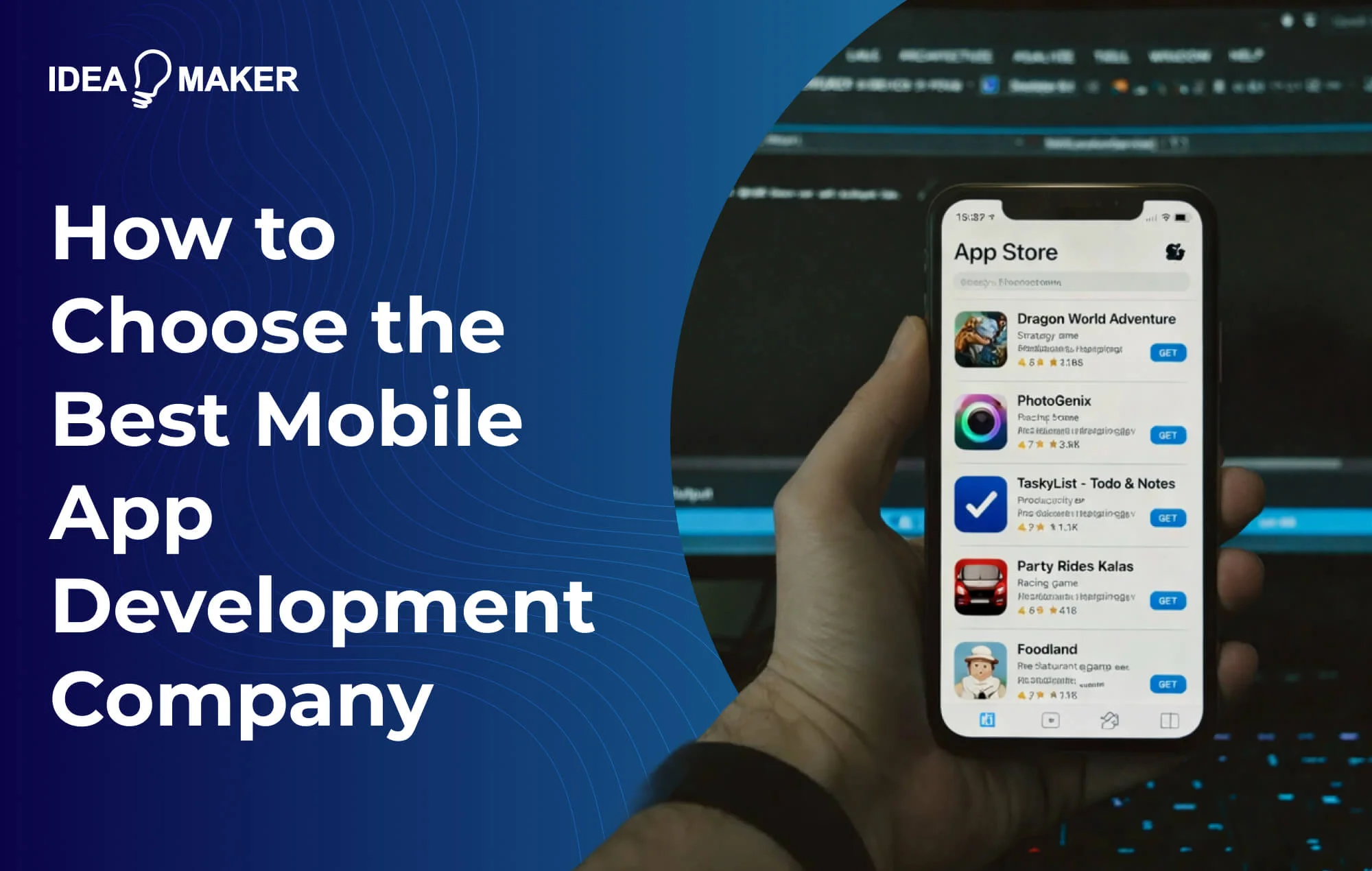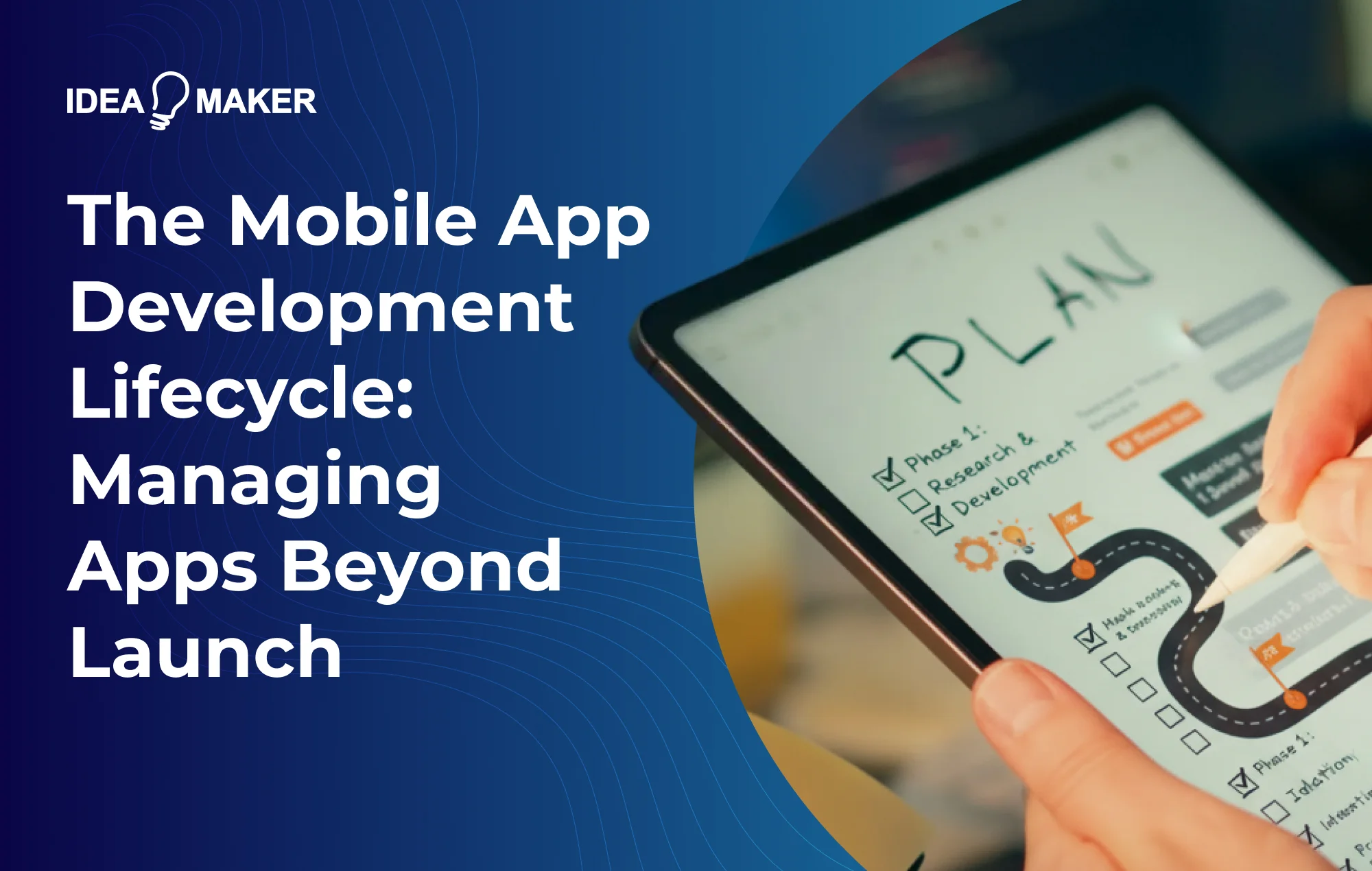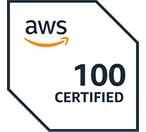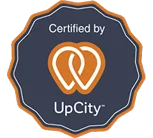Even in the midst of the pandemic, deals involving real estate technology in the United States totaled $7.3 billion in 2020. Fortunately, there are many real estate and rental websites for consumers to utilize, including Zillow, which receives more than 36 million monthly visits, making it the most popular website for those looking to rent or buy a home, according to Statista.
Of course, a market that is developing quickly has to eliminate room for error. All client needs must be met or else you will lose momentum. That’s why launching a solid real estate app can be used as a weapon against the competition.
In this article, we’ll explain how to build a real estate app and discuss everything you need to know to make your app successful.
What You’ll Learn in this Post
- What is a Real Estate App?
- Real Estate Market Trends
- Top 3 Real Estate Apps
- Under the Hood: Technical Considerations
- Monetization
- Steps to Build a Real Estate App
- Real Estate App Development Cost
- Idea Maker’s Experience In Real Estate
- Frequently Asked Questions
Table of Contents
What Is a Real Estate App?
Real estate apps are tools that support services that real estate brokers or agents perform, 3D tours of the space, client and agent interaction, documentation, and property management. Such real estate mobile app development can be highly beneficial in minimizing paperwork and streamlining procedures.
In terms of real estate investment, for instance, investors and agents are clamoring for solutions that enable possible monitoring of transactions. However, these apps must meet one requirement: they must be very adaptable.
Real Estate Market Trends
There are some real estate market trends that have redefined customer experience and affected the price of creating a real estate mobile app. These trends are discussed below:
Mobile App Usage
With 3.55 million apps available on the Google Play Store and another 2.24 million on the Apple App Store, it’s no surprise that mobile applications have become a significant development in commercial real estate in 2023.
There are currently several smartphone apps that can be used to buy, sell, or browse properties, and even find an agent.
Today, buyers and sellers can also interact virtually as they search for appealing houses, simplifying the entire process. However, to connect with clients who are on-the-go, a website must be mobile-responsive. So, in order to improve the customer experience and provide access to the portal whenever and wherever they want, it’s essential to prioritize real estate mobile app development.
Augmented Reality
Real estate tech businesses utilize augmented reality to boost online property search efficiency and convenience. This popular property management technology development is great for property managers, as virtual tours of possible properties can be accessed right at your fingertips. Plus, when a virtual tour can provide step-by-step directions, there is no need to write out elaborate instructions.
Additionally, when utilizing augmented reality, you can even superimpose photographs to produce a realistic architectural representation that will help potential buyers understand the property even before it is constructed. The designs of the property can then be modified and made customized via AR.
As a result, this real estate innovation is having a significant impact on the market for AR and VR. In fact, according to the National Association of Realtors, 50% of homebuyers who browse property listings on the internet believe virtual tours are a useful tool.
CRM Software
By using a well-organized database, customer relationship management (CRM) software implementation lets you manage your client relationships and interactions. With CRM, you can keep track of information like a customer’s contact information, the kind of property they’re looking for, and the date of your most recent encounter with them.
While the use of CRM on real estate websites is not a new development in technology, it’s anticipated that the industry will advance significantly by creating mobile apps for real estate agents.
What Are the Key Steps Involved in Building a Real Estate App?
In order to create a successful real estate app like Zillow, there are certain measures you will need to take to ensure it resonates with those looking to purchase or sell a property.
-
Define the Scope of the App
First, you should begin by defining the scope of your real estate app. This means identifying the features you want to include, the app’s purpose, how long you expect development to take, and how much money you wish to spend on the project. This stage is also an excellent time to research your target audience and user demographics to determine which features your app requires.
If you’re aiming for a younger audience, for example, you might want to implement a Tinder-like user interface wherein users can swipe left and right on houses until they find ones that match their preferences.
-
Choose the Right Platform
Next, you’ll need to determine the platform you want your real estate app to be available on and which development framework you plan to use. For instance, if you decide you want an iOS-only app, then you may choose to use the Swift development framework, as it’s perfect for Apple devices. AAlternatively, if you aim to develop a high-quality, native iOS application that leverages the full potential of Apple’s ecosystem, integrating our iOS app development services can provide you with expert guidance and technical proficiency. You may also decide to build a cross-platform web app that’s available to all users with access to an internet connection and web browser.
-
Gather Necessary Data
Once you’ve determined what platform and development framework is best for your real estate app, you should then start gathering the necessary data. This will include real estate agency contact information, current open houses, images of houses, and seller contact information. Of course, you can’t launch a real estate app without having houses listed and ready to sell.
-
Design User Interface
After gathering your data and outlining your scope, you can set about designing a user inference that clearly highlights functionality, adhering to proper usability principles. For example, to ensure your design doesn’t feel overcrowded and clunky, buttons should appear to be obviously clickable and design elements should be properly spaced.
-
Develop the App’s Features
Next, you can go ahead and start developing your real estate app’s features, taking care to marry brand, functionality, and user interface. If you lack development knowledge, your best bet is to hire an expert development agency like Idea Maker, which provides robust post-release support options and has a proven track record of high-quality projects.
-
Test the App (Quality Assurance)
After development, you’ll need to rigorously test your app to ensure that there are no obvious bugs and that it functions as intended. Ironing out any issues during this stage will enable a smooth launch, as delivering a mobile app with many bugs will serve only to stifle its success.
-
Deploy the App
Finally, once your app is thoroughly tested, you can go ahead and launch it to the iOS app store and Google Play store, unless you’ve opted to create a web app. After launch, you and your development team should continue to monitor your app to ensure that it functions smoothly throughout its lifecycle. You should also monitor user feedback and make updates accordingly.
Essential Features of a Real Estate App
The main objective of creating a real estate app is to grab users’ attention and simplify the buying or selling process. Of course, you don’t want to develop just another useless real estate software for the app stores. This means it’s crucial to monitor the most recent features and trends in the real estate market and, ultimately, implement them in your own app. Here are just a few of the most essential features that any real estate app should have in 2023:
Live Map Integration
When developing a real estate or construction business app, the map proves to be a crucial component. The incorporation of interactive maps is the responsibility of the real estate development company, allowing you to provide users with accurate information.
You can simply showcase the important information and statistics about the properties or take it a step further by including data about the neighborhood’s average income, crime rate, and location of nearby schools.
This relevant data can then be used in interactive services, enabling the opportunity to contribute to enhancing the maps in mobile apps for your real estate firm. The dynamic map function will also ensure your potential consumers can obtain all the necessary information whenever they locate the property.
Property Shortlisting
Another fundamental component of the real estate app is property shortlisting. You must display a list of available homes with all the relevant information in the listings. Users should have no trouble adding their listing if they want to rent, sell, or exchange their property. They should also be able to shortlist properties on a wishlist of sorts.
Due to the ongoing expansion of the property shortlisting, this will require a sizable – and reliable – database. In the future, there will be more users and, consequently, more listings, so make sure the database or servers are adaptable enough to handle the scale-up activities.
Property Profiles
These profiles include in-depth facts about the property, such as descriptions, images and videos, value propositions, and information related to the price, neighborhood and owner.
It’s important to note that more than 80 percent of customers base their decision to buy a home on the uploaded photographs and videos. The contact information for the realtor or the property owner may also need to be included in the property profiles.
Contact Options
Because providing users with comprehensive property information is critical when building a real estate app, you will need to add a call or direct messaging feature to move users to the next stage of the sales funnel. There are several ways to link buyers and agents, such as direct calls, callbacks, online inquiries and scheduled consultations.
This feature will ensure that a buyer will be able to get in touch with the seller or dealer for more information if they are interested in a certain property.
Property Search
Property search allows users to search for properties by location, price range, features, and other filters, providing an intuitive search interface to easily discover homes that meet their criteria. Advanced search functions like school districts and commute times also add value.
Map View
Incorporating an interactive map that displays available real estate makes it easy for users to find properties in their desired location. With a geo-located map, users can pan and zoom to visually explore properties in desired neighborhoods and link to listing details through map pins.
Chat
Some real estate apps have chat features that link buyers and sellers with real estate agents in the app. Agents can then respond to listing inquiries, schedule showings, and guide users through transactions in real time via in-app messaging.
Push Notifications
Push notifications send users timely, relevant notifications about new listings matching saved searches, upcoming open houses, price drops for favorited homes, and other personalized alerts. This will help keep users engaged and returning to the platform.
Virtual Reality
Many real estate apps also offer virtual 3D walkthroughs of listings, offering potential buyers an immersive preview of a property. Enabled by VR cameras, this feature allows buyers to experience properties remotely before visiting in person, saving time and simplifying the search process.
Under the Hood: Technical Considerations
Despite the operating system you choose, there are several technical aspects that should be considered when building a real estate app. Here are just a few:
Cross-Platform Support
Web applications with cross-platform or hybrid capabilities can be used with several mobile operating systems, as they expand quickly and serve a wider user base. However, because they were not created specifically for a particular mobile device, they typically operate slower compared to native apps.
With web technologies like CSS and JavaScript, developers can create hybrid applications that are then wrapped in native applications using frameworks like React Native, Ionic, and Xamarin.
Minimum Viable Product
Businesses frequently rely on investor or stakeholder support to raise money and launch a mobile initiative. Building trust in the product you’re pitching and its potential to produce the intended result is essential for gaining this buy-in to increase revenue and reduce check-out times.
The best way to get this support is to create an MVP, which enables you to test your concept before approaching investors. This guarantees that when you do, you’ll have a strong case showing the product’s market viability.
As stakeholders ultimately want to put money into products that will succeed, an MVP’s main benefit is that it provides a tangible product they can see and use, and demonstrates the value of the proposed product. In addition, if investors support the project, the product can be released without making stakeholders wait months for a return on their investment.
Scalability
Scalability helps to improve loading times, decrease update costs and time required, avoid crashes and bugs, and even increase client loyalty. In other words, it’s important to prioritize scalability as soon as you begin the app development process. After all, if the system you’re working on is unable to handle all the loads and complete functions and duties in every circumstance, failure will be inevitable.
Monetization
Developing a monetization plan is necessary to create a dependable source of money for mobile applications. Nevertheless, choosing the ideal app monetization strategy can be a challenge.
Subscription
The portal connects custom quotation tools with the administration platform under the mortgage subscription model. With this strategy, brokers and agents may be marketed to in order to sell subscriptions. The app could also leverage the SaaS subscription model with tiered pricing, meaning the more they pay, the more features they gain access to.
Sales Commission
The sales commissions model involves establishing a certain commission rate that the seller of the property must pay in order to list it on your app. You can choose the cost depending on the kind of property, its worth, and several other factors. Any properties sold on the real estate app could also pay a commission to the app owner.
Marketing Considerations
The real estate industry is one of the most technologically sophisticated in using and applying emerging technologies like QR Codes, beacons, blockchain, NFC, and artificial intelligence. As a result, real estate developers now have a number of advantages that help their company effectively market, sell, manage, and track present and potential customers.
App Store Optimization
App Store Optimization focuses on applications that use professional resources to raise the ranking of mobile platforms in app stores like the Apple App Store, Google Play, and the Windows Store. While the primary objective of ASO is almost always to increase app downloads, its secondary objectives can include:
- Increased brand awareness
- Positive evaluations and reviews of the app
- More reviews of apps published more frequently
- Audience participation
- Diversification of additional marketing channels
Google Search Ads
The location of your property should be the target audience for a Google Ads campaign for real estate. However, in the past year, Google Ads’ location settings have changed, making it impossible to hyper-target only “people in” your area. People in, or often in, have been altered.
You don’t want to turn away those who want to move, and those who frequently go somewhere or commute there for work are also likely to want to settle there. For this reason, it’s a good idea to place pay-per-click (PPC) ads on Google search results to drive traffic to the app store page.
Social Media Marketing
Social media may be a terrific method for buyers, sellers, and renters to start a conversation, offer guidance, and establish a long-lasting relationship. You’ll also find a helpful list of dos and don’ts for agents to follow, as well as sample posts you can use in your real estate social media strategy. PPC ads can be placed on social media as well, and organic content can be created at little-to-no cost.
Top 3 Real Estate Apps
When it comes to building a real estate app of your own, it’s a good idea to examine the top apps in the industry to ensure you have a better understanding of what helps them stand out among the competition. Here are the most known real estate apps that can serve as a blueprint for you:
-
Zillow
Apartments can be listed on Zillow for sale, rent, or lease, along with options to take a virtual tour of properties and get in touch with brokers. On Zillow, you may also browse properties through photos and video tours. Updates for specific properties can be sent to users via app notifications, as well. Various private sellers who advertise their homes for sale, listing agencies, foreclosures, auctions, and different sources all add to the supply of property listings.
-
Xome Auctions
The best software for buying a property at an auction is Xome Auctions because of its comprehensive online bid listings. Like other programs, Xome Auctions shows information about the property, pictures, and locations on a map. However, it distinguishes itself as one of the best because it specifies if financing is offered or if a cash payment is required.
The Xome Auctions app, accessible from the Apple and Android app stores, features one of the biggest collections of rare assets – allowing users to place early bids on properties using the platform’s pre-auction capability. Xome also provides transparent bids and speedy closing.
-
Redfin
The Redfin app offers a simple and approachable design, and enables users to look up neighborhood data and set up notifications to alert them when a home that fits their requirements becomes available.
Another interesting aspect of Redfin is that it earns money from listing fees, commissions, and advertising expenses. This speeds up the closing process and reduces stress for both the buyer and the seller, as it deftly mixes cutting-edge technology with prompt and individualized human contact.
Real Estate App Development Cost
By now, you’re probably wondering how much it costs to design a real estate app. Unfortunately, due to a number of factors, there is no conclusive answer, as app development costs are entirely based on a variety of factors, including the intricacy of the software and the features offered.
Platform Support
The project manager will ensure that deadlines are met and that the project’s scope is kept exactly as you specified. They will also communicate with you about the general development process of the real estate application while performing risk studies to identify potential security flaws.
Typically, project management costs range from 10-15% of the overall budget. However, based on the current projection, it may be close to $5,500. Prices for a straightforward and uncomplicated solution typically range from $25,000 to $45,000, with more advanced real estate apps costing as much as $70,000.
Of course, the project’s complexity and timescale will also influence the cost of developing a real estate mobile app.
Functionality
The features and technologies you want to include in your application, such as augmented reality, chatbots, or push notifications, will all determine how much the app will cost.
The important thing to remember is that the more intricate features you wish to use, the more expensive the development will be. You should also consider whether your app will run on iOS or Android. It is preferable to develop cross-platform apps that are compatible with all major OS if you want to meet the needs of all clients.
Idea Maker’s Experience In Real Estate
Since 2016, Idea Maker has served as a trusted web and software development agency for a variety of industries, including real estate. Our designers and developers created Open House Junky, a fully responsive custom website aimed at bringing real estate agents and homebuyers together under one roof.
Did you enjoy this article and want to move forward and develop a real estate app? Then schedule a call with us now to see what we offer.
